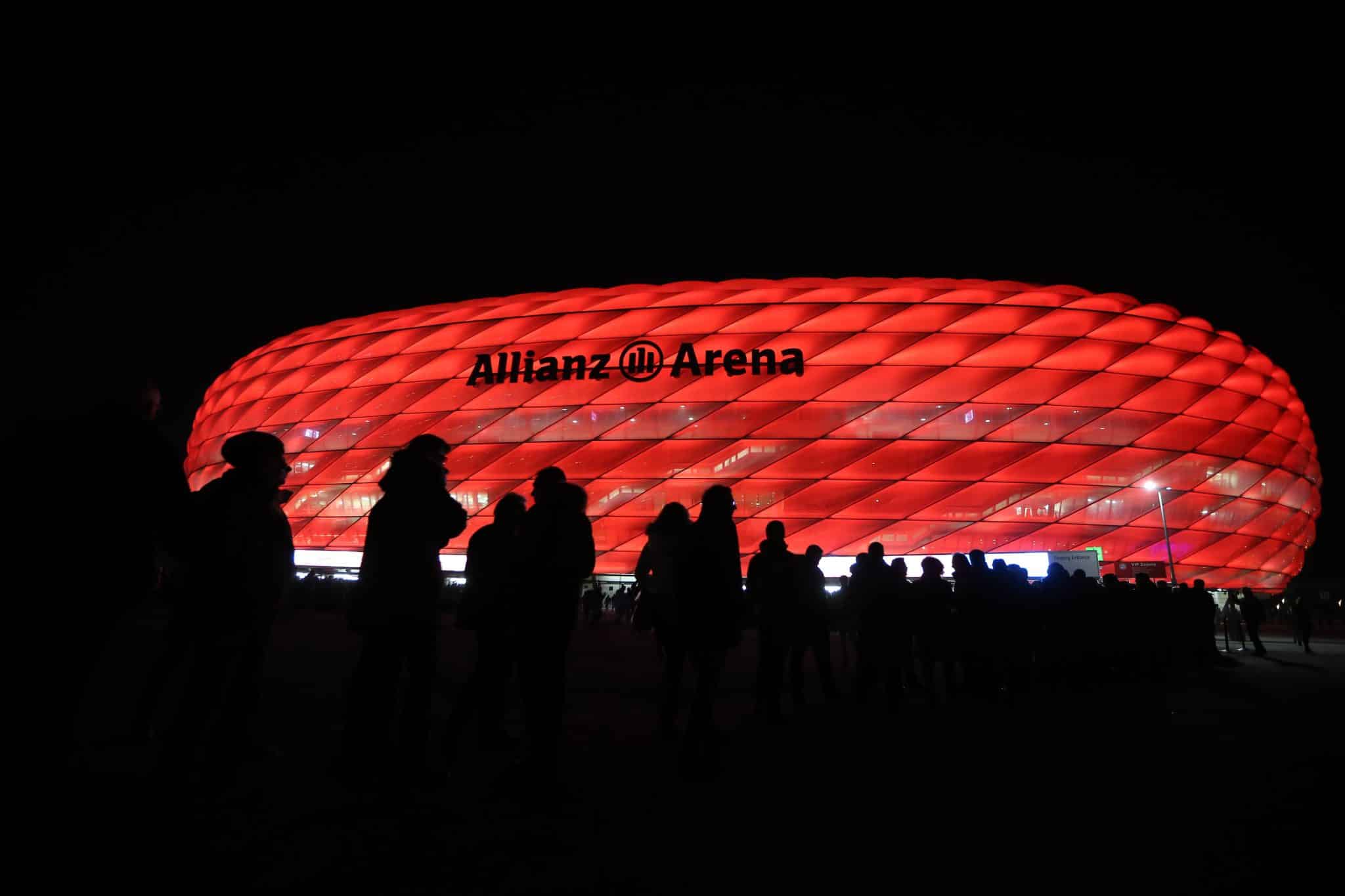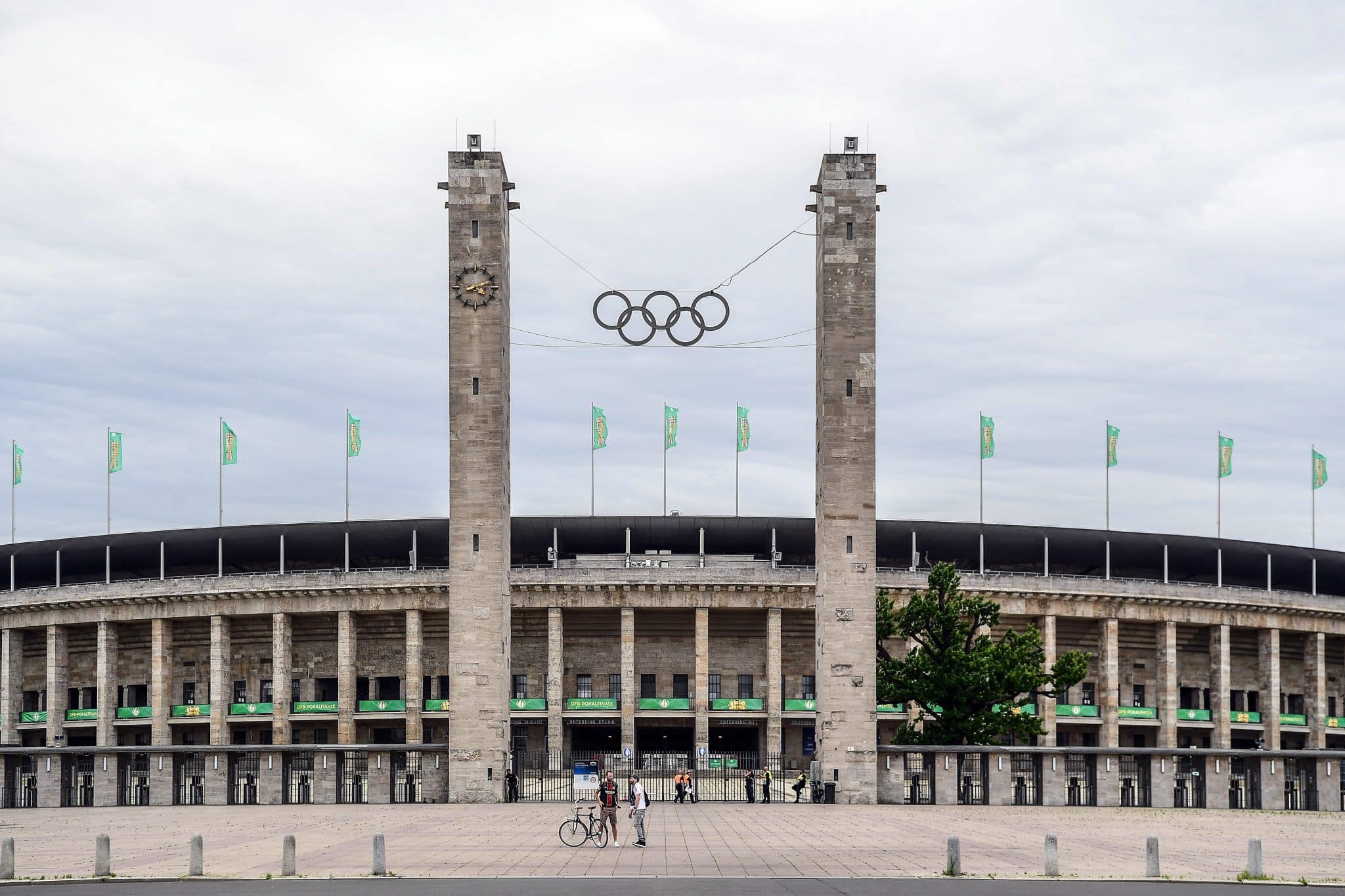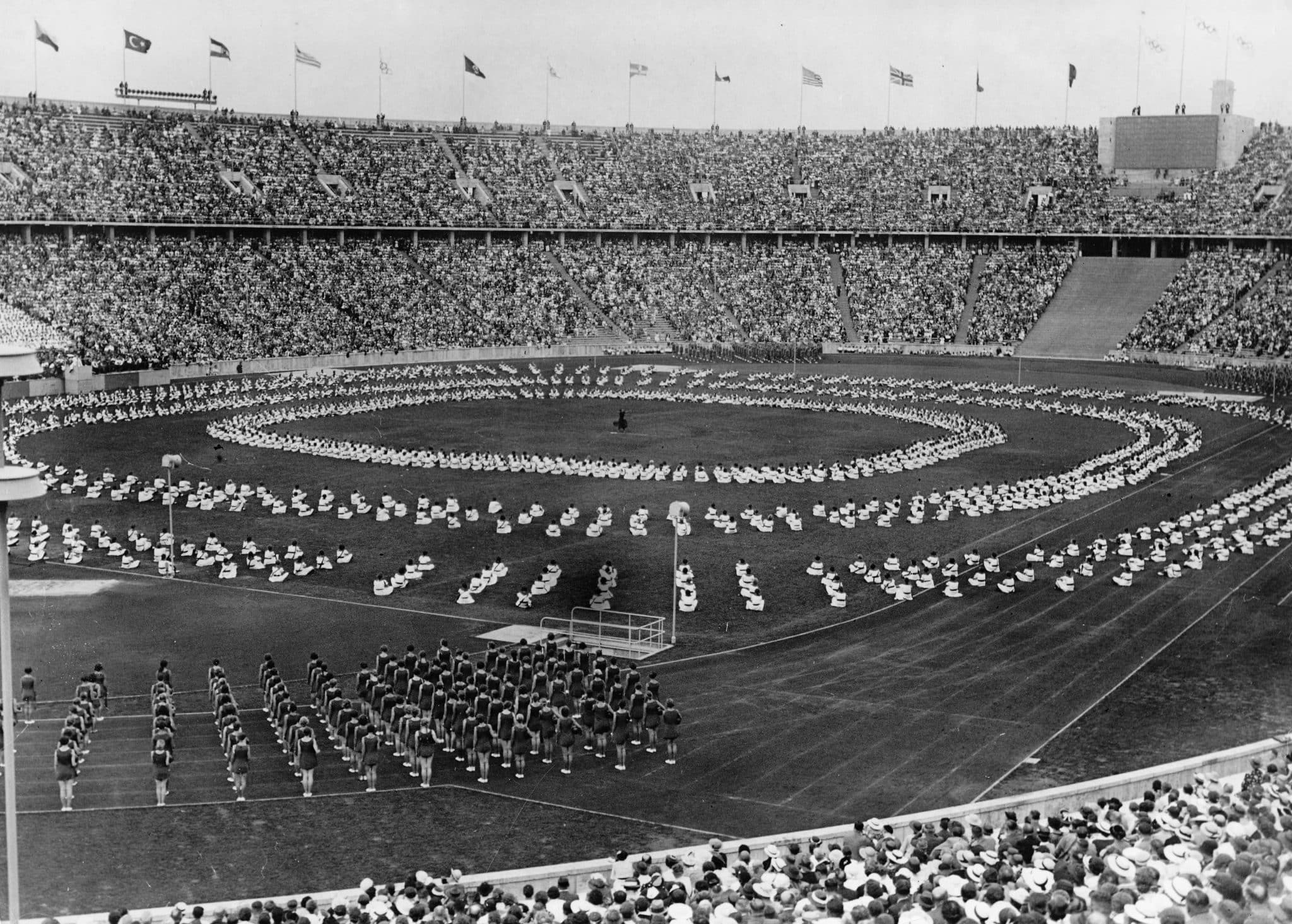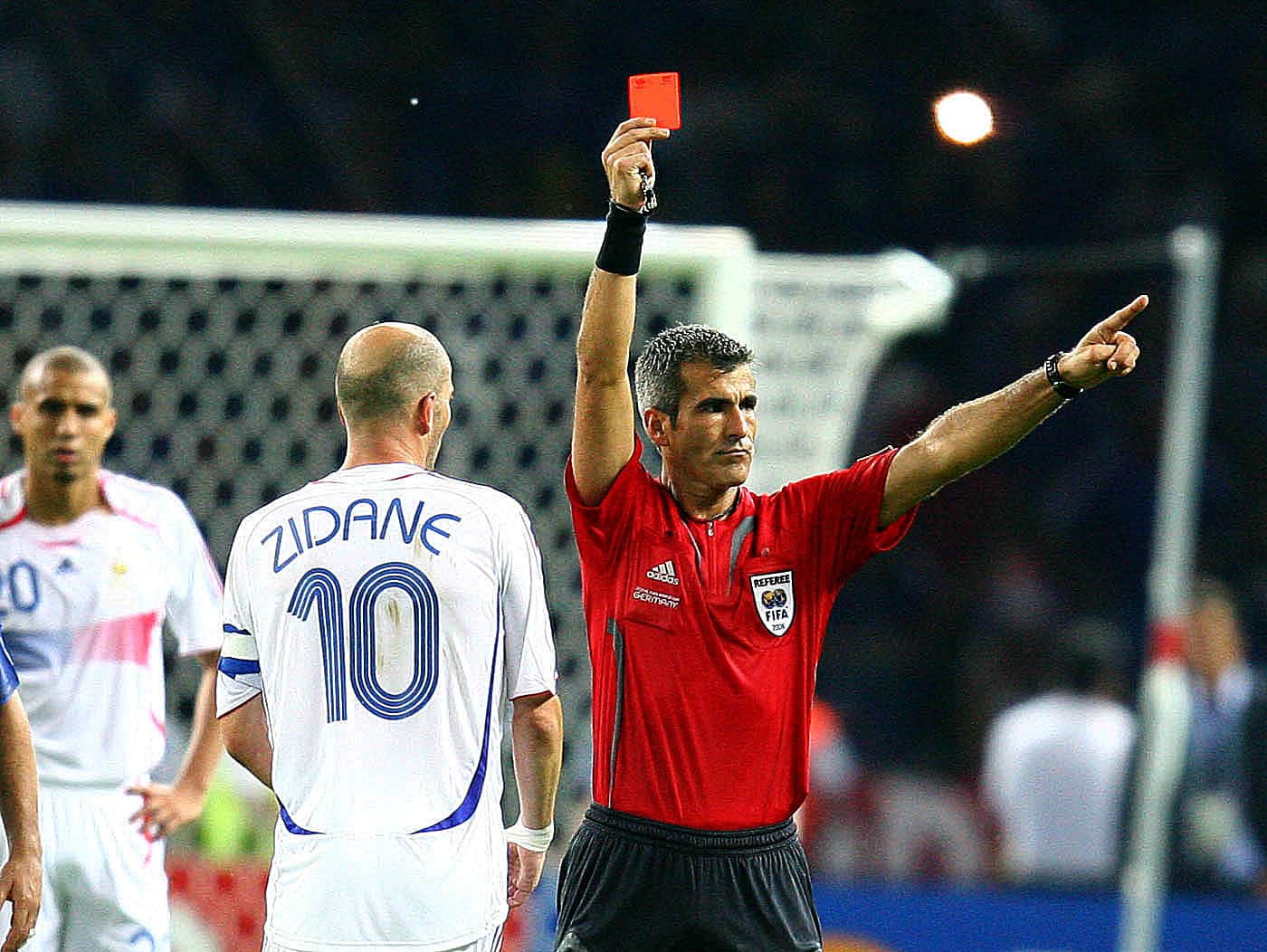In this post, find out which German city will host the 2024 European Championship final, including the history of the big stage, previous memorable football tournaments in Berlin as well as FAQs.
Germany is currently hosting the 17th edition of the UEFA European Championship, EURO 2024. So far, we have had some of the most exciting matches played so far. And now more than ever, the focus is the Euro 2024 final stadium. Most importantly, only two teams will make it to Berlin, so read on for more.
Euro 2024 kicked off on 14 June 2024, the opener saw the hosts Germany play at the Munich Football Arena, known as the Allianz Arena.
West Germany hosted the tournament in 1988, but this event marks the first time Germany has hosted the championship since reunification.

When was the Euro 2024 draw, and where?
Before the Euro 2024 began, there was an important date on the calendar that football fans noted: 2 December 2023. That's when the draw for EURO 2024 took place in Hamburg.
Much like the format of EURO 2020, the tournament structure featured six groups, with the top two teams from each group, along with the four best third-placed teams, securing their place in the round of 16.
Euro 2024 Groups and Teams
There are a total of 6 groups in the Euro 2024. It means there are a total of 24 teams in this year's European Championship, all competing for the ultimate prize. Group A featured the hosts Germany, Hungary, Scotland and Switzerland.
In Group B, we have had Albania, Croatia, Italy and Spain.
Group C of this year's Euros featured teams like Denmark, England, Serbia and Slovenia. England's Three Lions played two friendlies against Bosnia and Icelad before their opening Euros match against Serbia on 16 June 2024, followed by a clash with Denmark on the 20th, and Slovenia on 25 June. It was dubbed one of the easiest groups for the Three Lions in recent years but the big question remains, will Gareth Southgate's men go all the way to the big final stage?
In Group D of the 2024 Euro, we had Austria, France, Netherlands and Poland. The first group D game took place on 16 June 2024, a match in which Poland faced off against the Netherlands. The last time these teams met was on 22 September 2022 in the Nationals and the Dutch won it 2-0. The Poles lost 2-1 to a star-studded Ducth side in the group stages of the 2024 European Championship. Notably, the Netherlands never lost to Poland in recent 5 meetings with 4 wins and 1 draw.
In Group E of the Euros, we had Belgium, Romania, Slovakia, and Ukraine. None of the Group E teams remain in the competition as we head to the semifinals. The final group was F and it featured Turkiye, the Czech Republic, Portugal and Georgia.
Which is the Euro 2024 final stadium?
Now, let's fast forward to the grand finale of the tournament. The EURO 2024 final will be held at the iconic Olympiastadion in Berlin on 14 July 2024.

The Olympiastadion isn't just another football stadium; it's a place where history has been made across the sporting world. From Jesse Owens' legendary four gold medals during the 1936 Olympics, which boldly challenged Adolf Hitler's ideals, to Usain Bolt's lightning-fast 100m world record, this stadium has borne witness to incredible feats of athleticism.
And who could ever forget Zinedine Zidane's headbutt in the 2006 World Cup final?
What new history will follow in 2024?
With its towering two-story colonnades and 136 pillars, it promises an awe-inspiring backdrop for the EURO 2024 final. Even the bright blue running track, which encircles the pitch, won't be able to steal the show.
History of the Berlin Olympiastadion
The Olympiastadion was originally constructed for the 1936 Summer Olympics and was designed by the renowned architect Werner March. Its classic horseshoe shape and columns on the exterior exude an aura of timeless elegance.
During the Olympics, the stadium claimed a record attendance of over 100,000 spectators!
Over the years, the ground has undergone significant renovations to meet modern standards while preserving its historical charm. One of its most distinctive features is the blue running track surrounding the pitch, a testament to its multifaceted history but always a contentious topic for football fans…

Since its renovation in 2004, the Olympiastadion has boasted a permanent seating capacity of 74,475 and stands as the largest stadium in Germany for international football matches.
For local football fans, the Olympiastadion is synonymous with one thing – Hertha BSC, affectionately known as the ‘Old Lady.' The club has called the Olympiastadion its home since 1963.
However, the stadium will play host to Hertha’s city rivals Union Berlin for their 2023/24 Champions League campaign after they secured fourth place in the Bundesliga. It is the first time in the club’s history they have been in the Champions League.
Notable matches and tournaments at the Olympiastadion
In addition to its role as Hertha BSC's home ground, the Olympiastadion has a storied history of hosting major football events. Since 1985, it has been the venue for the German Cup (DFB-Pokal) Final, making it a cherished location for football fans across Germany.
Notably, the Olympiastadion played a pivotal role in the 2006 FIFA World Cup, hosting six matches, including the historic final between Italy and France. This unforgettable match, remembered for its drama and intensity, ended 1-1 after extra time. Zinedine Zidane's panenka penalty initially put France ahead, but Marco Materazzi's equaliser sent the game to penalties. The defining moment came when Zidane, in his last professional game, headbutted Materazzi and was sent off. Italy eventually emerged victorious in the penalty shootout, clinching their fourth World Cup title.

The stadium also witnessed the 2015 UEFA Champions League Final, featuring Juventus against Barcelona. Barcelona secured a 3-1 victory, with goals from Rakitić, Suarez, and Neymar, while Morata scored for Juventus. This triumph marked Barcelona's fifth UEFA Champions League title and completed their second treble.
This historic ground's legacy and the significance of the occasion make it a fitting choice to be the Euro 2024 final stadium. Football fans can look forward to an exciting showdown at this iconic venue in Berlin.
Which teams have made it to the Euro 2024 finals at Olympiastadion?
Berlin's Olympic Stadium is set to host the Euro 2024 finals. Spain and England will square it for the ultimate prize on 14 July 2024. At least 10, 00 tickets have been allocated for each side through their respective federations. Thousands more have booked tickets on resale platforms. French referee, Francois Letexier will be the main referee in charge of this encounter.
With the bookies' odds out, Spain are the favourite based on implied win probability. However, with England having got better with each game in the contest, we expect a highly connected encounter that is likely to end with either side as the winner.
Other host cities for Euro 2024
While the Olympiastadion in Berlin will be the EURO 2024 final stadium, other cities and their stadiums across Germany will also host matches:
Cologne: Cologne Stadium (47,000)
Dortmund: BVB Stadion Dortmund (66,000)
Dusseldorf: Düsseldorf Arena (47,000)
Frankfurt: Frankfurt Arena (48,000)
Gelsenkirchen: Arena AufSchalke (50,000)
Hamburg: Volksparkstadion Hamburg (50,000)
Leipzig: Leipzig Stadium (42,000)
Munich: Munich Football Arena (67,000)
Stuttgart: Stuttgart Arena (54,000)
FAQs about Euro 2024
When was the 2024 Euro draw?
The Euro 2024 draw took place on Saturday, 2 December 2024. The ceremony began at 19:00 CET.
How many groups are in the 2024 Euros?
There are a total of 6 groups in this year's Euros. Note that each group constitutes 4 teams.
Where was the 2020 Euros draw held?
The 2024 Euros draw was held in Hamburg, Germany. Remember that this year's tournament will take place in Germany and Hamburg is one of the host cities. There will be 4 games staged in Hamburg as well as one of the quarterfinals.
How will the Euros tournament work this year?
The format for Euros 2024 will be the same as that of 2020. The first two teams in each group will move to the round of 16. There will be an additional 4 teams, who make the third-best place from the groups added to the round of 16. The next round will be quarterfinals, semifinals and consequently, the biggest finals in the 2024 Euros between two sides that will manage to reach that far.
Which teams make up the EUFA Euro 2024 Group?
Group A of the 2024 Euros comprises Germany, Hungary, Scotland and Switzerland. The first game of the Euros this year will come from this group, in which case, Germany will lock horns with Scotland on 14 June 2024 in an epic battle. In recent five duels, Germany won 4 and one game ended in a draw.
Which are the teams in the Group B of 2024 Euros?
Group B teams are Albania, Croatia, Italy and Spain. We must say that Albania will have a difficult campaign in the group given the strong opposition it will be paired with. Spain vs Croatia will be the first game from the group and it will take place on 15 June 2024.
What is the allowed number of squad members in Euro 2026?
The latest information from EUFA is that the 2024 Euro squad will be expanded to 26, awaiting the signature of the EUFA executive. Several coaches, including Gareth Southgate, rejected a leaner squad of 23 during a meeting of the national competitions committee.
How many Euro titles has Spain won?
Spain has won three titles in the European Championship in the years 164, 2008, 2012)
Has England won the European Championship?
England has no Euro 2024 title ahead of their clash with Spain in the 2024 finals. The Three Lions made it to the finals in the last tournament, so they hope another final in 2024 could end with silverware.
